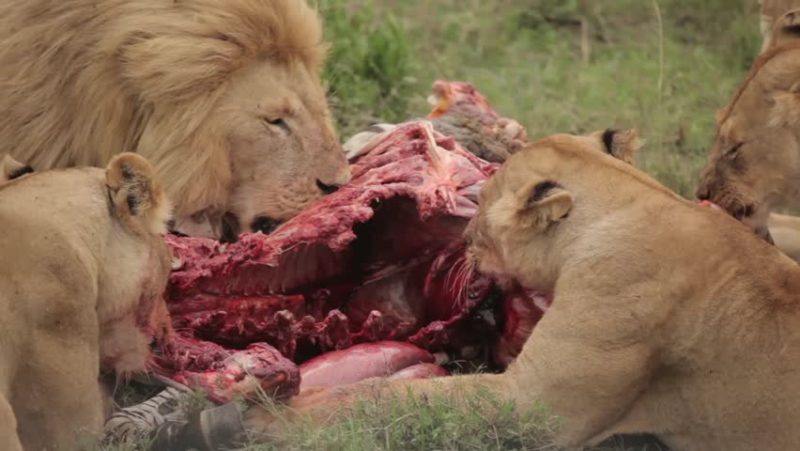For all of their roaring, growling, and ferociousness, lions are described as family animals and social in their own communities. Allyson Shaw of the National Geographic in this listicle lists 10 reasons we need to save or protect lions and the reasons these big cats need our help

Best Hair
A thick, dark mane shows that a lion is fit and healthy. Lionesses prefer males with dark manes, according to the Serengeti Lion Project, and a thick, long, dark mane signals to other males that a lion is in fighting shape.
Top Predator
Every species is important to the health of an ecosystem. Removing one species can weaken a habitat, but if a keystone species is removed, an entire ecosystem could collapse. If large predators such as lions disappeared, herd populations would balloon, and grazers would eat up the grass. The savanna would become a sandy desert.
Eric Nappers
Lions spend about two to three hours hunting, one hour eating, and a full 20 hours sleeping every day!
Street Smart
They’ve got street (well, savanna) smarts. To be successful, lions must outsmart their prey. So they memorise every inch of their hundred-square-mile territories. They store detailed, 3-D maps in their brains, like in a video game. They know the location of their prey’s favorite hangouts, watering holes, and worn paths. Lions can easily recall the best lookout points in their territory and the best spots to launch an ambush.
Ninja-Like
They’re the ninjas of the animal kingdom, masters of the stealth approach. Their padded feet make barely a sound on soft grass and sand. And their tan-colored coats blend into their natural habitat. A lion’s prey almost never sees it coming until it’s too late.
Night Vision
Lions can see six times better in the dark than humans! They have a reflective layer of cells at the back of their eyes. Light from the moon or stars hits the cells and bounces forward, like a car’s headlights. Animals and surroundings appear brighter in the dark.
Good Appetites
Lions are not picky eaters. They are opportunistic hunters and will eat any nearby animal if they’re hungry enough. They’ll eat anything from birds (including ostriches) to whale carcasses that wash up on Africa’s beaches.
Team Players
Lions hunt in groups, improving their chances of success against larger prey. Group hunts are carefully orchestrated events. For example, each lioness takes on a different role. Some lions act as “wings” by fanning out and circling prey on long stalks. The “center” position carefully stays put until the wings drive the prey their way. Then they attack.
They Rule
Lions once dominated the African landscape—their territories stretched from north of the Sahara to the South African Cape. They even roamed through Greece, India Iran Iraq, and Turkey! Ancient Egyptians, Nubians, and Chinese worshipped gods with the head of a lion.
Endangered
Lions are becoming rarer. There are only an estimated 35,000 African lions and just 400 Asiatic lions left in the wild. They are being driven out of their habitats by hunters, poachers, and human encroachment. See how you can help their cause by watching a Mission Animal Rescue video all about lions!
